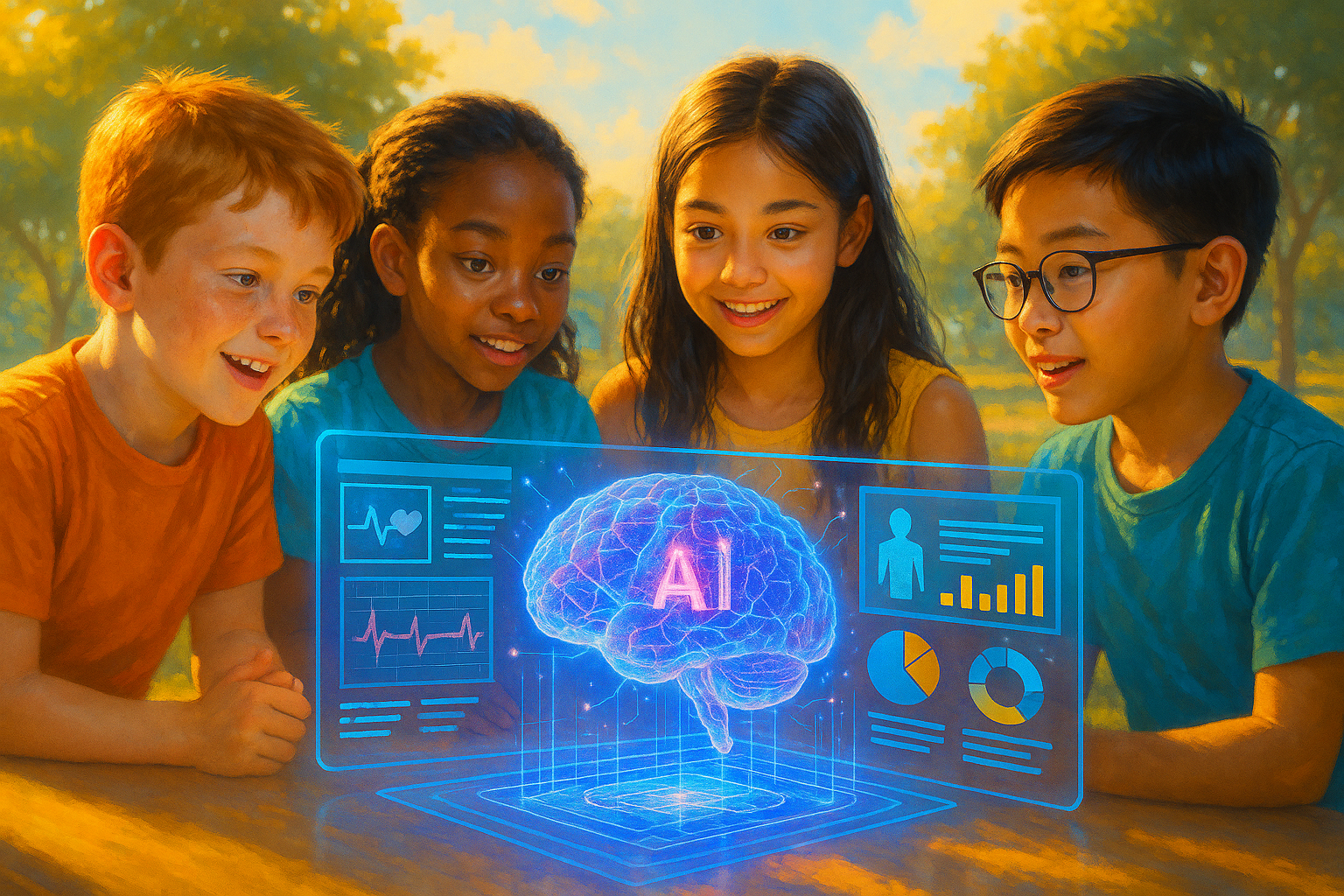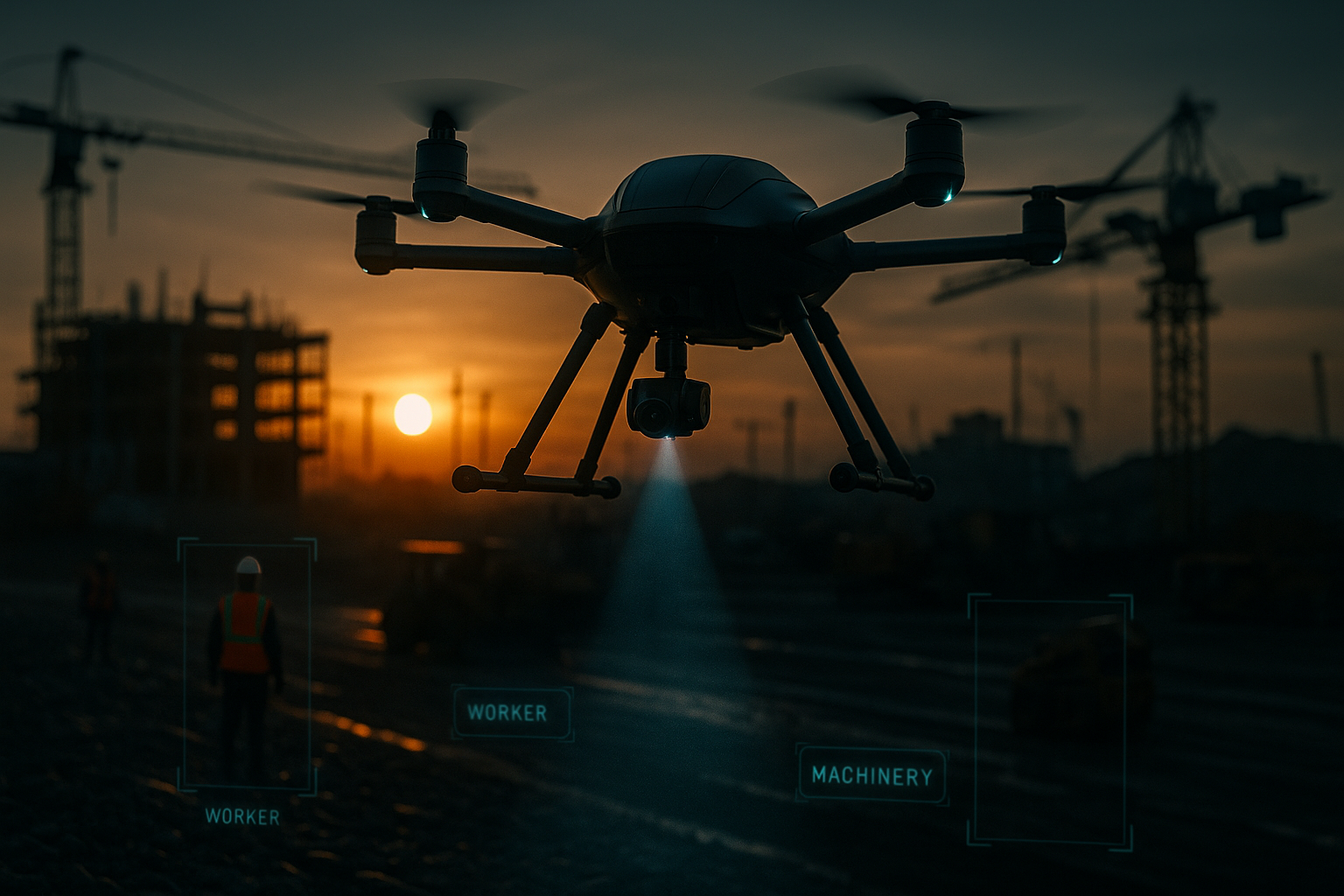
AI: A Beacon of Hope in the Fight Against Pediatric Cancer
In a world where innovation meets compassion, artificial intelligence is emerging as a powerful ally in the battle against pediatric cancer. St. Jude Children’s Research Hospital, in collaboration with Peruvian healthcare institutions, has recently pioneered a deep learning model that promises to revolutionize the accuracy and speed of childhood cancer diagnoses. This groundbreaking initiative, featured in a recent AACR publication, exemplifies the transformative potential of AI in addressing critical healthcare disparities, particularly in regions where access to specialized medical expertise is limited.
Deep Learning: Unlocking New Possibilities
The AI tool at the heart of this advancement leverages the power of deep learning, a sophisticated branch of AI renowned for its ability to discern intricate patterns within complex datasets. In the context of pediatric cancer, this capability is invaluable. Deep learning models can analyze medical images, genomic data, and other diagnostic information with remarkable precision, enabling the identification of subtle indicators that may elude the human eye. This is particularly crucial for the diagnosis of rare cancers, where early detection can significantly impact treatment outcomes.
Bridging the Specialist Gap
One of the most compelling aspects of this AI-driven initiative is its potential to bridge the gap in access to specialized medical professionals. In many regions, the availability of pediatric oncologists and other cancer specialists is limited, creating significant challenges for timely and accurate diagnoses. By empowering local physicians with AI-powered diagnostic tools, this project extends the reach of expert knowledge, ensuring that more children receive the care they need, regardless of their geographic location.
Expediting Treatment, Improving Outcomes
The ultimate goal of this initiative is to expedite treatment initiation and improve patient outcomes. Early and accurate diagnosis is paramount in the fight against pediatric cancer, and AI has the potential to dramatically accelerate this process. By providing physicians with rapid and reliable diagnostic support, this technology can help ensure that children receive the right treatment, at the right time, maximizing their chances of survival and long-term well-being.
Navigating the Challenges of Implementation
While the potential benefits of AI in pediatric cancer diagnosis are undeniable, it’s important to acknowledge the challenges that lie ahead. Ensuring equitable implementation across diverse geographic areas requires careful consideration of factors such as:
- Infrastructure: Reliable internet access and sufficient computing power are essential for the deployment and utilization of AI-powered diagnostic tools.
- Training: Healthcare professionals must be adequately trained on how to effectively use and interpret the AI’s outputs.
- Data Bias: AI models must be trained on diverse and representative datasets to avoid biases that could lead to inaccurate diagnoses.
- Sustainability: Long-term funding and support are crucial for the maintenance and ongoing development of these systems.
AI: A Force for Good in Healthcare
The St. Jude’s initiative is just one example of the growing movement of AI for Good in healthcare. Across the globe, researchers and clinicians are harnessing the power of AI to address a wide range of challenges, from improving diagnostic accuracy and personalizing treatment to accelerating drug discovery and enhancing patient care. As AI continues to evolve, its potential to transform healthcare and improve the lives of children with cancer is truly limitless.
Bibliography
- “AI-driven Analysis of Digital Pathology Images May Improve Pediatric Sarcoma Subtyping.” AACR, 28 Apr. 2025, https://www.aacr.org/about-the-aacr/newsroom/news-releases/ai-driven-analysis-of-digital-pathology-images-may-improve-pediatric-sarcoma-subtyping/ .
- Huang, I-Chan, et al. “Leveraging natural language processing and machine learning to characterize psychological stress and life meaning and purpose in pediatric cancer survivors: a preliminary validation study.” JAMIA Open, 26 Mar. 2025, https://www.stjude.org/research/progress/progress-pulse/2025/ai-successfully-detects-psychological-stress-in-childhood-cancer.html .
- Smith, Andrew, et al. “Technology tidalwave: How artificial intelligence is shaping the future of radiology.” St. Jude Research, 18 Feb. 2025, https://www.stjude.org/research/progress/2025/technology-tidalwave-how-artificial-intelligence-is-shaping-the-future-of-radiology.html .
- “Artificial Intelligence for Neuroimaging in Pediatric Cancer.” PubMed, 12 Feb. 2025, https://pubmed.ncbi.nlm.nih.gov/40002217/ .
- “Early Identification of Childhood Cancer Survivors at High Risk for Late Onset Cardiomyopathy: An Artificial Intelligence Approach utilizing Electrocardiography.” NIH RePORTER, https://reporter.nih.gov/search/Ae-7mmvL7k6U8kBelBYJIQ/project-details/11059172 .
- “Research News & Publications.” St. Jude Children’s Research Hospital, https://www.stjude.org/about-st-jude/stories/research-news-publications.html .
- Zhang, Jinghui, et al. “St. Jude Cloud offers a data-sharing genomic ecosystem for the precision medicine era.” Cancer Discovery, 6 Jan. 2021, https://www.stjude.org/media-resources/news-releases/2021-medicine-science-news/st-jude-cloud-offers-data-sharing-genomic-ecosystem-for-precision-medicine-era.html .
- “Harnessing Artificial Intelligence in Pediatric Oncology Diagnosis and Treatment: A Review.” MDPI, 2 Jun. 2025, https://www.mdpi.com/2072-6694/17/11/1828 .
- “Artificial Intelligence for Neuroimaging in Pediatric Cancer.” MDPI, 12 Feb. 2025, https://www.mdpi.com/2072-6694/17/4/622 .
- “Revolutionizing precision oncology: the role of artificial intelligence in personalized pediatric cancer care.” Frontiers, 18 May 2025, https://www.frontiersin.org/journals/medicine/articles/10.3389/fmed.2025.1555893/full .
- “The Role of Machine Learning Approaches in Pediatric Oncology: A Systematic Review.” PMC, 16 Jan. 2025, https://pmc.ncbi.nlm.nih.gov/articles/PMC11736508/ .
- “Artificial Intelligence in Pediatric Cancer Diagnosis and Care.” PCRF, 12 Apr. 2024, https://pcrf-kids.org/2024/04/12/artificial-intelligence-in-pediatric-cancer-diagnosis-and-care/.
- “Novel machine-learning algorithm creates atlas of cancer with potential as universal diagnostic platform.” SickKids, https://www.sickkids.ca/en/news/archive/2023/novel-machine-learning-algorithm-creates-atlas-of-cancer-with-potential-as-universal-diagnostic-platform/ .
- “6 ways AI is transforming healthcare.” World Economic Forum, 14 Mar. 2025, https://www.weforum.org/stories/2025/03/ai-transforming-global-health/ .
- “AI for Healthcare Uncovered: Top Uses, Examples, and Benefits.” Vonage, 15 Jan. 2025, https://www.vonage.com/resources/articles/ai-for-healthcare/ .
- “Harnessing artificial intelligence for health.” World Health Organization (WHO), https://www.who.int/teams/digital-health-and-innovation/harnessing-artificial-intelligence-for-health .
- “AI for Good: The Future of Health.” Gates Discovery Center, 29 May 2025, https://www.discovergates.org/events/ai-for-good-the-future-of-health/ .
- “Microsoft launches new AI for Good program, AI for Health, to accelerate global health initiatives.” Microsoft, 29 Jan. 2020, https://news.microsoft.com/en-ca/2020/01/29/microsoft-launches-new-ai-for-good-program-ai-for-health-to-accelerate-global-health-initiatives/.
- “These health systems are using AI to make meaningful change.” AMA, 7 Nov. 2024, https://www.ama-assn.org/practice-management/digital-health/these-health-systems-are-using-ai-make-meaningful-change .
- “AI in healthcare – 10 promising interventions.” NIH, 28 Jul. 2023, https://evidence.nihr.ac.uk/collection/artificial-intelligence-10-promising-interventions-for-healthcare/ .




